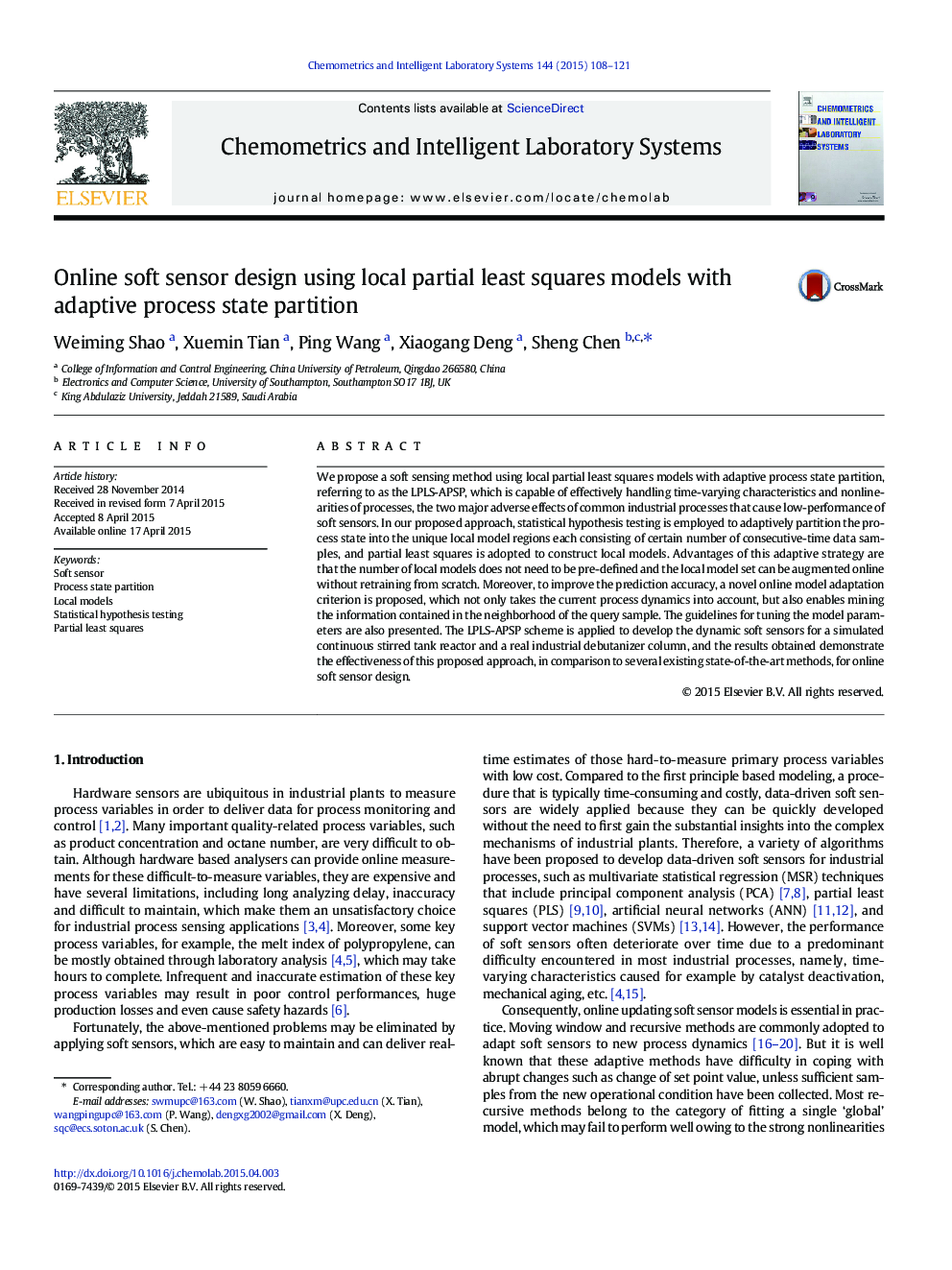| Article ID | Journal | Published Year | Pages | File Type |
|---|---|---|---|---|
| 1180428 | Chemometrics and Intelligent Laboratory Systems | 2015 | 14 Pages |
•Propose adaptive process state partition based on effective statistical hypothesis testing•Develop online model adaptation by exploiting newest sample and mining neighborhood information of query sample•Proposed LPLS-APSP soft sensor outperforms several existing benchmark online soft sensor designs.
We propose a soft sensing method using local partial least squares models with adaptive process state partition, referring to as the LPLS-APSP, which is capable of effectively handling time-varying characteristics and nonlinearities of processes, the two major adverse effects of common industrial processes that cause low-performance of soft sensors. In our proposed approach, statistical hypothesis testing is employed to adaptively partition the process state into the unique local model regions each consisting of certain number of consecutive-time data samples, and partial least squares is adopted to construct local models. Advantages of this adaptive strategy are that the number of local models does not need to be pre-defined and the local model set can be augmented online without retraining from scratch. Moreover, to improve the prediction accuracy, a novel online model adaptation criterion is proposed, which not only takes the current process dynamics into account, but also enables mining the information contained in the neighborhood of the query sample. The guidelines for tuning the model parameters are also presented. The LPLS-APSP scheme is applied to develop the dynamic soft sensors for a simulated continuous stirred tank reactor and a real industrial debutanizer column, and the results obtained demonstrate the effectiveness of this proposed approach, in comparison to several existing state-of-the-art methods, for online soft sensor design.
